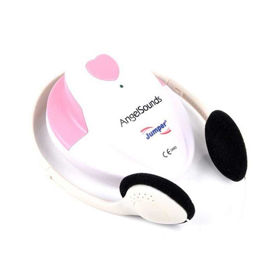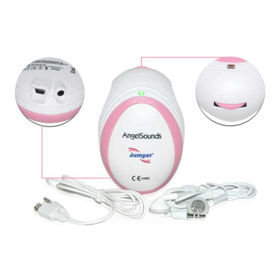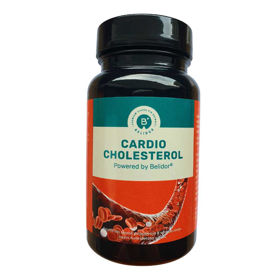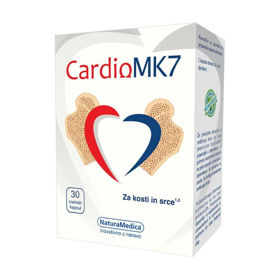Customer question:
What is an average heart rate? Anonymous customer's question
Pharmacist's answer:
Average heart rate can vary from person to person and depends on various factors, including age, gender, physical fitness, health, and other circumstances. Heart rate is usually measured in beats per minute (bpm).
Typical resting heart rate zones for different age groups:
- Newborns (0-1 month): 120-160 bpm
- Infants (1 month–1 year): 100–150 bpm
- Children (1-10 years): 70-130 bpm
- Adults (over ten years): 60-100 bpm
However, it is essential to note that these are only general guidelines, and individual differences are standard. Physical activity, emotional state, medication, stress, caffeine, and other factors can affect heart rate. For example, the heart rate may increase during exercise or feeling stressed, which is a normal body response to such factors.
There is also sometimes a notion of a "normal" heart rate as 60-100 bpm for adults. Still, individual differences are essential, and doctors consider the whole clinical context when assessing an individual's heart rate. If you have any concerns about your heart rate or notice any sudden changes, talk to your doctor, who can provide you with an appropriate assessment and advice.
What can cause a faster heartbeat at rest?
A faster heart rate at rest, called tachycardia, can have various causes:
- Physical activity: recent exercise or physical activity can increase your heart rate, even if you have already stopped the activity.
- Stress or anxiety: emotional stress or anxiety can cause the release of adrenaline, which intensifies the heartbeat.
- Lack of sleep: quality sleep can affect the heart rate and cardiovascular system.
- Heat or dehydration: high temperatures or dehydration can increase the heart rate in response to maintaining body temperature.
- Fever or illness: Infections, fever, or other types of illness can cause your heart rate to increase.
- Stimulant abuse: Using stimulants such as caffeine, nicotine, or certain drugs can increase your heart rate.
- Heart disease: Certain heart diseases, such as arrhythmias, heart failure, or heart valve defects, can cause an increase in heart rate.
- Thyroid disorders: Thyroid disorders, especially hyperthyroidism, can cause an increase in heart rate.
- Anemia: lack of red blood cells in the blood can lead to an increase in heart rate.
- Certain medications: some medications, including some decongestants, antidepressants, and others, can affect heart rate.
If you notice a persistent increase in your heart rate or if your heart rate is worrying, talk to your doctor. The doctor can perform appropriate tests, diagnose the underlying cause, and prescribe appropriate treatment if necessary.
How do you measure your heart rate at home?
There are several ways you can measure your heart rate yourself.
The three primary methods are listed below:
- Counting the pulse: place your fingers (usually the index and middle fingers) on the wrist, under the thumb, or on the side of the neck, under the jaw. Count the beats for 15 seconds and multiply the result by 4 to get the number of beats per minute.
- Using the device: Various devices allow you to measure your heart rate directly. These can be hand-held heart rate monitors, wrist devices, or smartphone apps with a built-in heart rate sensor.
- Electrocardiogram (ECG) at home: some devices allow you to measure your heart rate using a home electrocardiogram. These devices usually capture heart rhythms and allow you to share the results with your doctor.
Regardless of your chosen method, measuring your heart rate in a calm environment when relaxed is essential. You should measure your heart rate several times and at different times of the day to get a more accurate picture of your heart rate.
If you have concerns about your heart rate or notice any abnormalities, consult your doctor. Sometimes, it is necessary to use more advanced diagnostic procedures, such as an electrocardiogram, to determine the cause and perform
heart health assessment.
Do women and men have different heart rates?
Yes, there are differences in the average heart rate between women and men. Heart rate, the number of beats per minute, generally varies with various factors, including age, physical fitness, and gender.
In adults, it is common for the average heart rate for women to be slightly higher than for men. The average heart rate range is between 60 and 100 beats per minute. In women, the average heart rate can move towards the upper limit of this range.
It is also normal for a woman's heart rate to increase during pregnancy. Physical changes during pregnancy, such as increased blood volume and the need for oxygen for the growing fetus, can contribute to an increased heart rate.
What is the average heart rate of babies?
The average heart rate of babies changes with development and age. It is usual for newborns to have a higher heart rate compared to adults. Some general guidelines for infant heart rates are:
- Newborns (0-1 month): average 120-160 beats per minute.
- Infants (1 month–1 year): average 100–150 beats per minute.
It is important to emphasize that these are only guidelines, and the actual heart rate of the baby may vary. Various factors, including physical activity, emotional state, hunger, or sleepiness, can affect a baby's heart rate. If you notice unusual heart rate changes or have any concerns about your baby's health, consult your doctor or pediatrician. Regular check-ups by a doctor in the first months of life are essential for monitoring the baby's health and identifying potential problems.
Is arrhythmia always a severe medical condition?
Arrhythmia, or irregular heartbeat, is not always a serious medical condition. There are different arrhythmias, some of which are relatively mild and do not require specific treatment, while others can pose a health risk and require monitoring or treatment.
Some arrhythmias, such as occasional extrasystoles (a feeling that the heart skips a beat) or supraventricular tachycardia, are often not dangerous and do not always require specific treatment. However, it is essential that anyone who notices an irregular heartbeat or experiences symptoms consults their doctor.
Other types of arrhythmias, such as atrial fibrillation, ventricular tachycardia, or ventricular fibrillation, can be severe and require medical attention. These types of arrhythmias can increase the risk of serious complications, including heart failure or stroke.
The doctor needs to assess the type of arrhythmia, its cause, severity, and associated risk factors. If you experience an irregular heartbeat or have any symptoms, consult your doctor, who will be able to provide you with an appropriate diagnosis and treatment plan based on your medical condition.
Interesting reading: Ground spotted thistle
Interesting reading: Ground spotted thistle













